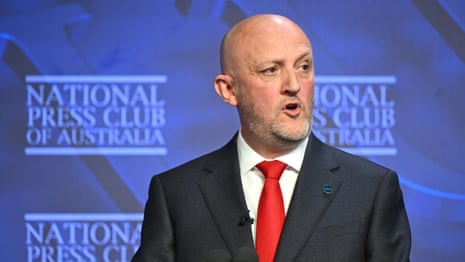Meta has said news is not the antidote to the disinformation and misinformation spreading on Facebook and Instagram, as the company continues to resist being forced to pay media companies for news in Australia.
Meta announced in March that it would not sign new deals with media companies to pay for news following the end of contracts signed in 2021 under the Morrison government’s media bargaining code.
Deputy Treasurer Stephen Jones is considering whether the Albanese government should use powers under the Media Bargaining Code legislation to “designate” Meta under the code, which would force the tech company to enter into payment negotiations with news providers, or risk fines of 10% of its Australian revenue.
The Treasury Department is also considering other options, including forcing the company to broadcast news or influencing it through the tax system. The government is concerned that if Meta falls under the code, it will block news in Australia, as has happened in Canada since August last year.
A Canadian expert told Guardian Australia that when news was missing, it was replaced by misleading viral content.
In a submission to the federal parliamentary inquiry into social media and Australian society, Meta said it was “not aware of any evidence” to support the claim there was more misinformation on its platform in Canada as a result of the news ban, and said Meta had “never thought about news as a way to minimise misinformation/disinformation on our services”.
“With or without news content, we are encouraged to and do remove harmful misinformation and reduce the distribution of verified misinformation, and we remain steadfast in our commitments to ensure the integrity of information on our platforms by countering this type of harmful content,” the filing states.
“Canadians can continue to use our services to access authoritative information from a variety of sources, including government agencies, political parties and non-governmental organizations, which have always shared information with their audiences in engaging formats, including links to news content.”
Meta highlighted its partnerships with third parties to verify or label content, which remain available in Canada, as part of its work to limit the spread of misinformation. The company said that since the news ban in Canada, there has been no significant drop in engagement among Canadian users.
“News is replaceable,” Meta said.
An analysis by Guardian Australia earlier found that news was largely replaced by memes on Facebook.
After the newsletter promotion
Meta’s Australian policy director Mia Garlick told the committee last month that all options were on the table if Meta was designated under the news code, but declined to comment on the hypothetical option of blocking news.
Publishers have said the effect of a news blackout would be devastating. Broadsheet, which publishes city, restaurant and entertainment guides, told the committee in a submission that it would lose up to 52% of its revenue if news was blocked. The publisher said it would “make it almost impossible for the business to survive”.
There has also been pressure for other platforms, including TikTok, to be designated under the code. However, TikTok told the inquiry that of the content consumed by the 8.5 million Australians on the platform, less than 0.5% is professional news content.
This was despite TikTok Own economic report A study published earlier this year found that 27.5% of users turn to the app to find current events and social causes. TikTok’s director of public policy in Australia, Ella Woods-Joyce, explained that the difference is that what the public considers news may be different to what the media and politicians consider news.
“I understand that the code defines ‘news’ in a very particular way, and it is reasonable for us to consider using it in a particular way, but the broader community may have a different view of what news actually is to them.”

